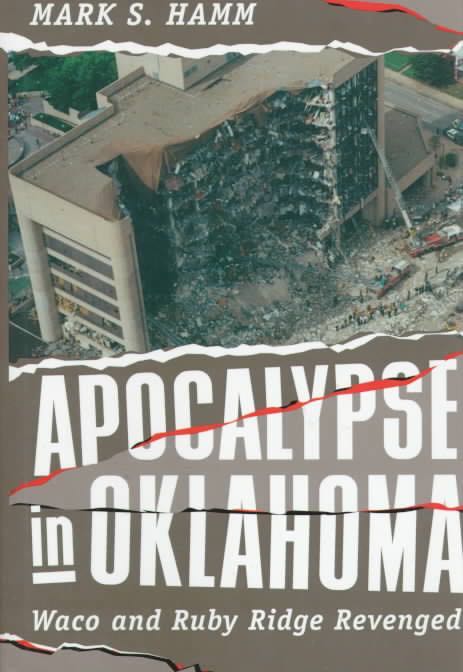Apocalypse in Oklahoma: Waco and Ruby Ridge Revenged
Reviewed date: 2007 Sep 11
242 pages
Mark S. Hamm wrote Apocalypse in Oklahoma before the trials of McVeigh and Nichols were complete, so it is missing some of the facts. Still, it is a valuable book because it explores the culture of violent right-wing militias that gave McVeigh the support he needed to become a terrorist.
Instead of beginning with McVeigh, Hamm begins with an exploration of the right-wing survivalist militia groups in America. In particular, he examines the Christian Identity movement. Christian Identity (and numerous other similar groups) were steeped in racism, religion, and a deep distrust of the government. They turned violent and carried out domestic terrorist attacks on government targets, but by 1990s, the FBI had broken their power.
It was this community that Timothy McVeigh entered when he returned from the Gulf War. Although Hamm presents no evidence that McVeigh was religious or racist, it is clear that McVeigh found validation for his anti-government view among these separatist paramilitary groups.
McVeigh's association with the radical right is well known. Hamm presents another theory, too: McVeigh was suffering from post-traumatic stress disorder (PTSD) after the Gulf War. Further, he spent much of his time drugged up on crystal meth--a drug whose side effects include paranoia. Consequently, he developed a paranoid personality. The Waco incident was the final straw that convinced McVeigh that a violent response was necessary and appropriate. Hamm leaves unsaid the obvious conclusion that if it hadn't been Waco, it would have been something else. McVeigh's violence was inevitable.
Hamm's book is marred by his various agendas. He blames the military for not detecting McVeigh's personality problems when he enlisted, for not treating him for PTSD upon his discharge. He blames the FBI for failing to catch McVeigh before the bombing, and again for bungling the investigation. (This is perhaps the most curious of Hamm's criticisms. Hamm lambasts the FBI for not acting swiftly enough, thereby allowing John Doe Number 2 to escape. But Hamm later mentions that John Doe 2 was identified and turned out to be uninvolved.) Then Hamm takes potshots at the NRA and the Republican party, while going out of his way to all but deify President Clinton.
If you can get past Hamm's obvious agendas and his incomplete presentation of the facts, Apocalypse in Oklahoma is an excellent look at the culture that provided Timothy McVeigh with the support network he needed to become America's deadliest domestic terrorist.
